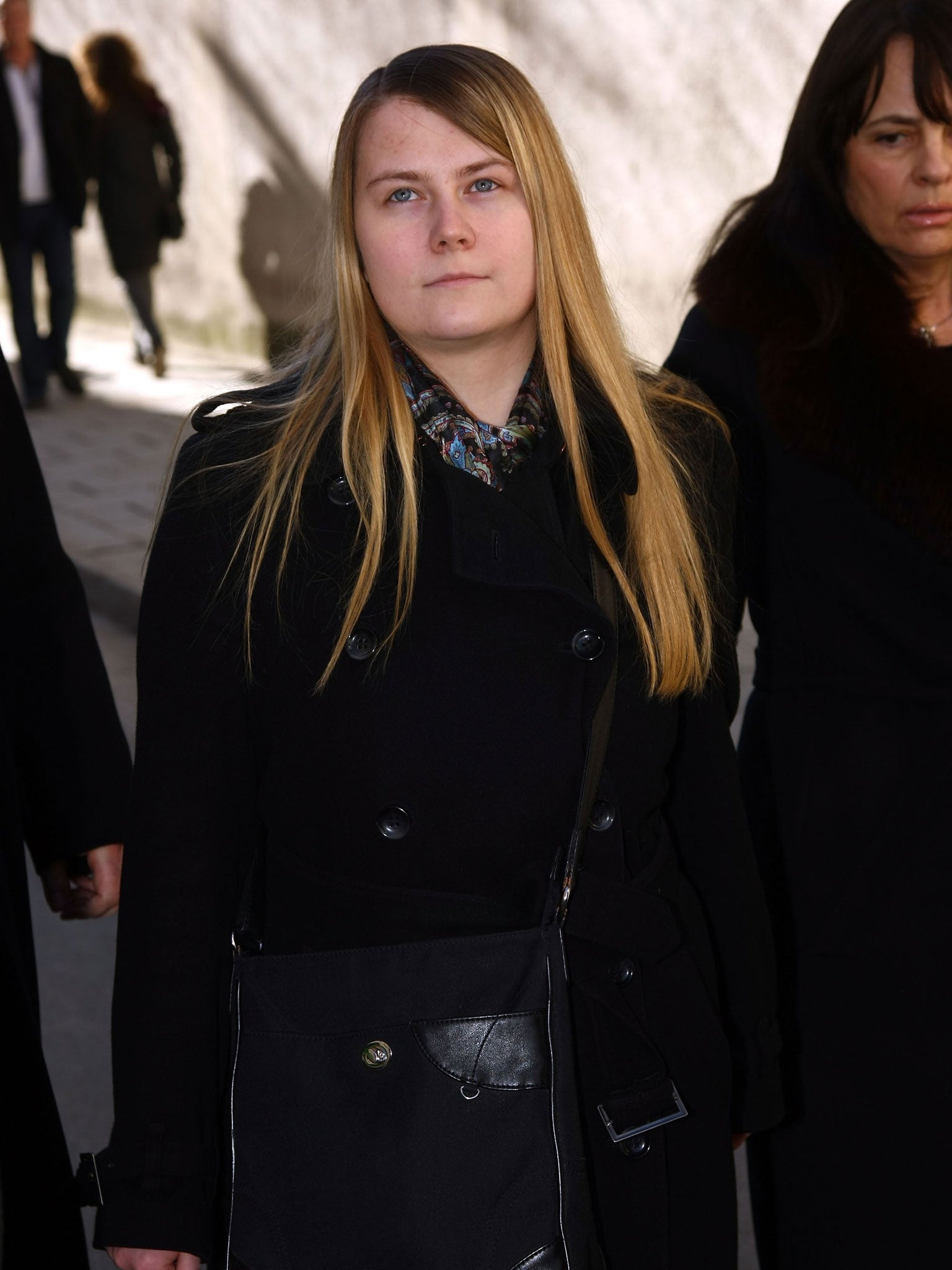Natascha Kampusch case resurfaces: Murder theory rises over 'suicide' of police chief who led inquiry into eight-year disappearance of schoolgirl
Suspicions have been raised by results of new tests carried out by Austrian forensic expert

Austria is poised to reopen the case of Natascha Kampusch, the kidnapped schoolgirl who escaped from eight years' imprisonment in a cellar in 2006, following the release of new evidence which suggests that the "suicide" of the police chief who led the investigation into her abduction may in fact have been murder.
Natascha Kampusch was just 10 years old when she was abducted. In March 1998 her kidnapper grabbed her from behind as she was walking to school in Vienna and bundled her into the back of a van. For the next eight years she was imprisoned in a specially built underground cell beneath the suburban home of her abductor.
In August 2006 she finally managed to escape. Neighbours discovered the then 18-year-old girl looking pale, emaciated and terrified as she hid in a next door garden. At first they did not believe her story. But later the same day the headless corpse of Wolfgang Priklopil, her 44-year-old kidnapper was found on a railway line just outside the Austrian capital.
Yet seven years on from what was held to be the conclusion of one of the world's most publicised abduction cases, new evidence has emerged which implies that Priklopil may have had an accomplice and that police and justice authorities could have been involved in an attempt to cover up his existence.
Suspicions have been raised by the results of new tests carried out by the Austrian forensic expert Professor Peter Leinzinger which were published on Wednesday. They conclude that Franz Kröll, the reputedly incorruptible Vienna police colonel who led the Kampusch investigation until his alleged "suicide" in 2010, may have been murdered.
Mr Kröll is said to have come under intense pressure to present a "doctored version" of the Kampusch kidnapping to prosecutors. He is reported to have told colleagues shortly before he was due to present his findings in early January 2010: "I am not going to go in there and lie to everyone's face."
But on 8 January 2010, the Vienna state prosecutor held a press conference at which he declared that the Kampusch case had been solved and that Priklopil was the only perpetrator. Mr Kröll was absent. Six months later the policeman's dead body was found slumped on a terrace outside his flat in the Austrian town of Graz.
A judicial inquiry concluded that he had shot himself in the head with a round fired from left to right from his police issue Walther pistol which he had held in his left hand. However Professor Leinzinger concludes: "Contrary to the findings of the investigating officers, the shot was fired from right to left." His report directly contradicts the original investigation and suggests that Mr Kröll's death was not suicide at all.
Furthermore, earlier police claims that the projectile that killed the policeman had "bounced off the wall" of his terrace are contradicted by Professor Leinzinger who discovered that the hole allegedly left in the wall by the bullet was a hole "drilled to support a washing line".
There are other factors which suggest that Kröll did not commit suicide. His brother Karl, who has been fighting to have the investigation reopened, says that there are "huge inconsistencies" in the handwriting used in the note his brother allegedly left behind. In addition, the contents of an A4 file in which his brother used to log details of the Kampusch case was missing from its folder when police showed up to investigate his death.
"Professor Leinzinger's report will now form the basis of a parliamentary inquiry, Karl Kröll told Der Spiegel magazine this week, "This case must be finally resolved," he insisted.
The mystery surrounding Mr Kröll's suicide has already led to an independent investigation into the Kampusch affair which is being led by Johann Rzeszut, a former president of Vienna's Supreme Court. He says he has found 27 inconsistencies and omissions in the case and claims that police have ignored several vital pieces of evidence.
One of the most significant is the eyewitness account of a 12-year-old schoolgirl referred to as Ischtar A. who is thought to have been the only person who saw Kampusch being abducted in March 1998. She has revealed that she told police on six occasions that another man was sitting in the driving seat of the van as Priklopil grabbed Kampusch off the street and bundled her into the back of the vehicle.
Ischtar A, who is now 24, has since testified under oath that police put her under intense pressure not to mention the existence of a second man as they were wrapping up their inquiry.
Subscribe to Independent Premium to bookmark this article
Want to bookmark your favourite articles and stories to read or reference later? Start your Independent Premium subscription today.

Join our commenting forum
Join thought-provoking conversations, follow other Independent readers and see their replies